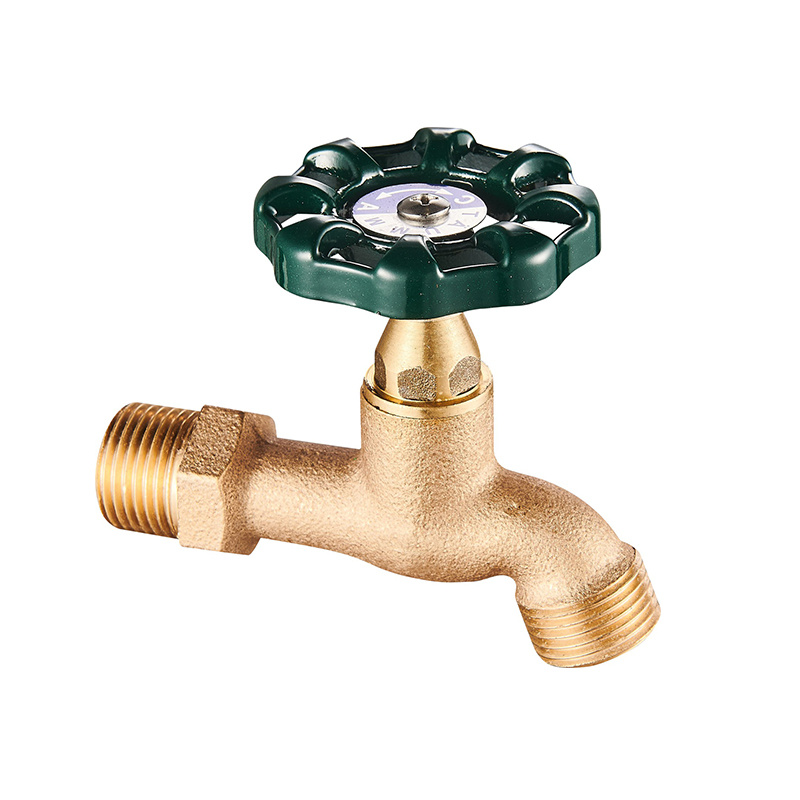News
22
2025
-
06
Understanding the Critical Role of HVAC Bronze Valves in Modern Systems
Understanding the Critical Role of HVAC Bronze Valves in Modern Systems
Table of Contents
1. Introduction to HVAC Systems and Their Components
2. What Are HVAC Bronze Valves?
3. The Importance of Valves in HVAC Systems
3.1. Types of Valves Used in HVAC
3.2. How Bronze Valves Stand Out
4. Advantages of Using Bronze Valves in HVAC Systems
4.1. Durability and Longevity
4.2. Corrosion Resistance
4.3. Cost-Effectiveness
5. Common Applications of HVAC Bronze Valves
5.1. Residential HVAC Systems
5.2. Commercial HVAC Systems
6. Installation and Maintenance of Bronze Valves
6.1. Installation Guidelines
6.2. Maintenance Best Practices
7. How to Choose the Right Bronze Valve for Your HVAC System
7.1. Factors to Consider
7.2. Sizing and Specifications
8. Frequently Asked Questions about HVAC Bronze Valves
9. Conclusion
1. Introduction to HVAC Systems and Their Components
Heating, ventilation, and air conditioning (HVAC) systems play a crucial role in maintaining indoor comfort in residential, commercial, and industrial settings. These systems regulate temperature, humidity, and air quality, ensuring a healthy and comfortable environment. Various components, including ductwork, air handlers, and valves, contribute to the overall functionality of HVAC systems. Among these components, **bronze valves** hold a significant position, providing efficient control over fluid flow.
2. What Are HVAC Bronze Valves?
HVAC bronze valves are specifically designed fittings made from an alloy of copper and tin that offers excellent mechanical properties and corrosion resistance. They are utilized within HVAC systems to regulate the flow of fluids such as water or refrigerants. These valves come in various types, including globe valves, ball valves, and gate valves, each serving distinct purposes in the management of fluid dynamics.
3. The Importance of Valves in HVAC Systems
Valves are indispensable components of HVAC systems. They ensure that the system functions efficiently by controlling the flow of fluids. The right valve can optimize heating and cooling processes, saving energy and maintaining comfort levels.
3.1. Types of Valves Used in HVAC
Several types of valves are used in HVAC systems, each with unique functionalities. Common types include:
- **Ball Valves**: Ideal for quick shut-off applications.
- **Gate Valves**: Used for on/off control with minimal pressure drop.
- **Globe Valves**: Designed for throttling fluid flow.
- **Check Valves**: Prevent backflow in piping systems.
3.2. How Bronze Valves Stand Out
Bronze valves exhibit several advantages over other materials, including superior corrosion resistance and durability, especially in high-temperature and high-pressure applications. They can withstand the rigors of diverse HVAC environments, making them a preferred choice for professionals in the industry.
4. Advantages of Using Bronze Valves in HVAC Systems
The use of bronze valves in HVAC systems brings multiple benefits, enhancing overall system performance and longevity.
4.1. Durability and Longevity
Bronze valves are known for their impressive durability. Unlike plastic or cheaper metal alternatives, bronze can endure extreme conditions, including fluctuations in temperature and pressure. This resilience translates to a longer lifespan, reducing the frequency of replacement.
4.2. Corrosion Resistance
Corrosion can significantly impair the efficiency of HVAC systems. Because bronze has natural corrosion-resistant properties, it is ideal for environments where moisture and harsh chemicals are present, minimizing maintenance costs and downtime.
4.3. Cost-Effectiveness
Although bronze valves may have a higher initial cost compared to some alternatives, their durability and low maintenance requirements make them a cost-effective choice in the long run. Investing in quality bronze valves can lead to significant savings on repairs and replacements.
5. Common Applications of HVAC Bronze Valves
HVAC bronze valves find application in various system types, ranging from residential installations to large commercial setups.
5.1. Residential HVAC Systems
In residential systems, bronze valves regulate water flow in heating and cooling units, maintaining desired temperature levels throughout the home. Their reliability ensures consistent performance, contributing to overall comfort.
5.2. Commercial HVAC Systems
For commercial HVAC systems, bronze valves handle larger volumes of fluids, managing complex piping systems. Their ability to operate effectively under high pressure and temperature makes them ideal for these demanding applications.
6. Installation and Maintenance of Bronze Valves
Proper installation and maintenance of bronze valves are essential for optimal performance.
6.1. Installation Guidelines
When installing bronze valves, ensure that all fittings are secure and that the valve is oriented correctly based on the intended flow direction. It is also essential to adhere to the manufacturer's specifications for torque and pressure settings.
6.2. Maintenance Best Practices
Routine maintenance checks should be performed to identify any signs of wear or corrosion. Regularly inspect the valves for leaks and ensure that they operate smoothly without any obstructions. Keeping the surrounding area clean will also prolong the valve's lifespan.
7. How to Choose the Right Bronze Valve for Your HVAC System
Selecting the appropriate bronze valve for your HVAC system requires careful consideration of several factors.
7.1. Factors to Consider
- **Type of Fluid**: Determine whether the valve will handle water, steam, or refrigerants.
- **Pressure and Temperature Ratings**: Ensure the valve meets the system's operational requirements.
- **Size and Connection Type**: Choose a valve that fits within the existing piping system.
7.2. Sizing and Specifications
Selecting the proper size for a bronze valve is critical. An undersized valve can restrict flow and create pressure drops, while an oversized valve may lead to inefficiencies. Consult with a professional to ensure the right specifications are met.
8. Frequently Asked Questions about HVAC Bronze Valves
1. What is the lifespan of HVAC bronze valves?
Bronze valves can last for decades with proper maintenance, often exceeding 20 years depending on the conditions of use.
2. Are bronze valves suitable for all types of HVAC systems?
Yes, bronze valves are versatile and can be used in most HVAC systems, including residential and commercial applications.
3. How do I know if my bronze valve needs replacement?
Signs of wear, corrosion, or frequent leaks are indicators that a valve may need to be replaced.
4. Can bronze valves be used for both hot and cold water applications?
Absolutely, bronze valves are suitable for both hot and cold water systems due to their thermal stability.
5. What maintenance do bronze valves require?
Regular inspections, cleaning the valve, and checking for leaks are essential maintenance tasks to ensure optimal performance.
9. Conclusion
In summary, HVAC bronze valves play an integral role in modern heating, ventilation, and air conditioning systems. Their durability, corrosion resistance, and cost-effectiveness make them indispensable in both residential and commercial applications. By understanding their functions, advantages, and maintenance practices, you can maximize the efficiency of your HVAC system. As technology advances, staying informed about the latest developments in HVAC components will ensure that you make the best choices for your heating and cooling needs. Embrace the power of bronze valves to achieve optimal performance and longevity in your HVAC systems.
hvac bronze valve
Previous


